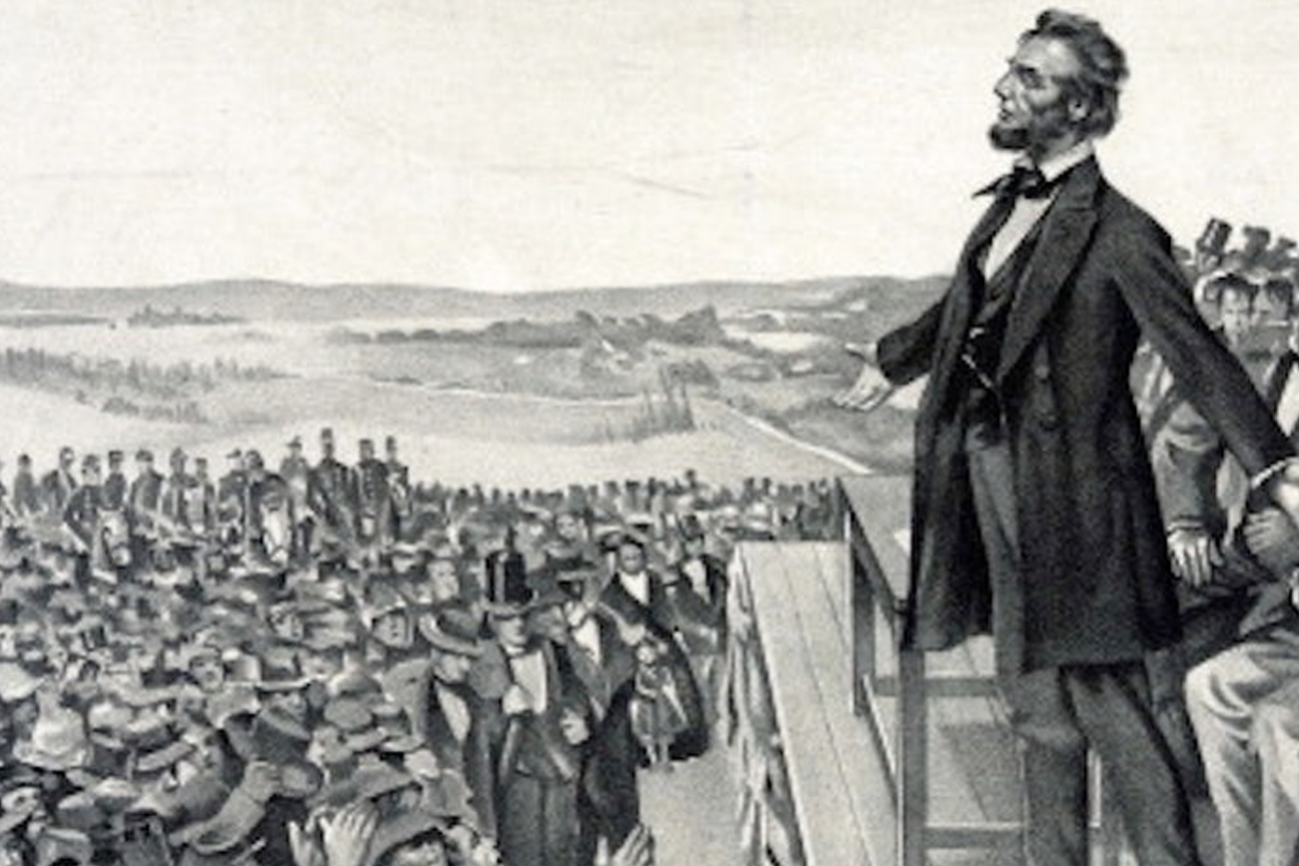As this COVID-19 marathon continues, ReputationUs is offering step-by-step, mile-by-mile support, “front line” observations and best practices.
Today, we’re going waaaay back in the history of American crises. The largest crisis in our country was the Civil War. Although the matter at hand was significantly different (i.e., fighting internally vs. fighting a faceless virus), the degree of stress, uncertainty and loss of life was common to what we’re addressing today with COVID-19.
The Gettysburg Address
In all its simplicity and brilliance, President Lincoln’s Gettysburg Address will forever be the gold standard for providing strong, succinct and powerful words during a crisis.
This week, I reread this historic discourse (below) and still marvel on Lincoln’s word choice, sentiments, gratitude, empathy, and vision for the future. My favorite part was addressed at the end of his speech. Lincoln expressed a “new birth.” As opposed to suggesting the nation will go back to the way things were, he painted a picture of newness that shall come after the war has passed.
Fast forward to 2020 when corporate and nonprofit leaders struggle to know what to say, how to say it and inject a degree of empathy and vision into their vernacular. I encourage business executives to look to one of the greats, Abraham Lincoln and his Shakespearean prose, the Gettysburg Address…
“Fourscore and seven years ago our fathers brought forth, on this continent, a new nation, conceived in liberty, and dedicated to the proposition that all men are created equal. Now we are engaged in a great civil war, testing whether that nation, or any nation so conceived, and so dedicated, can long endure.
We are met on a great battlefield of that war. We have come to dedicate a portion of that field, as a final resting-place for those who here gave their lives, that that nation might live. It is altogether fitting and proper that we should do this. But, in a larger sense, we cannot dedicate, we cannot consecrate—we cannot hallow—this ground. The brave men, living and dead, who struggled here, have consecrated it far above our poor power to add or detract.
The world will little note, nor long remember what we say here, but it can never forget what they did here. It is for us the living, rather, to be dedicated here to the unfinished work which they who fought here have thus far so nobly advanced. It is rather for us to be here dedicated to the great task remaining before us—that from these honored dead we take increased devotion to that cause for which they here gave the last full measure of devotion—that we here highly resolve that these dead shall not have died in vain—that this nation, under God, shall have a new birth of freedom, and that government of the people, by the people, for the people, shall not perish from the earth.”








